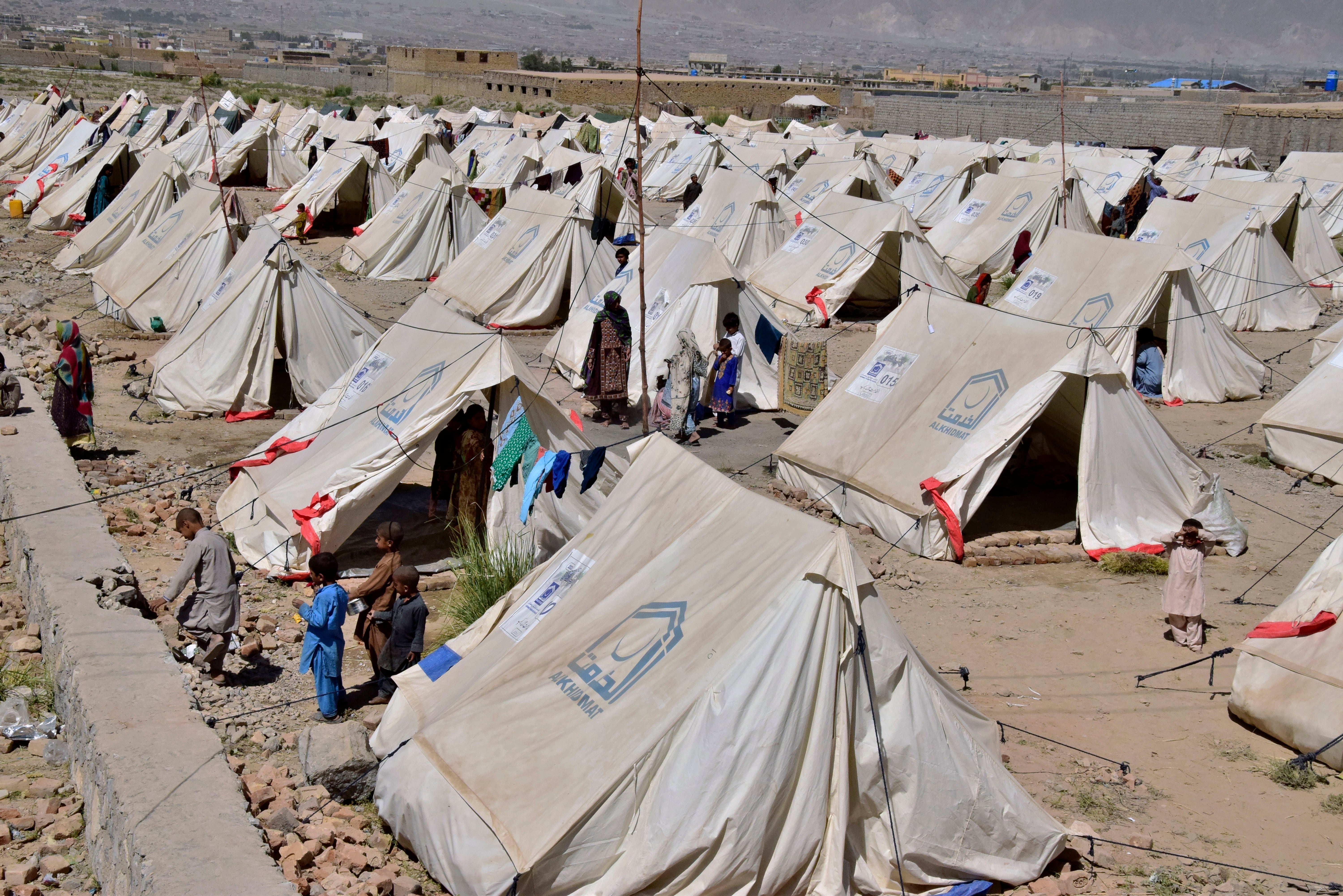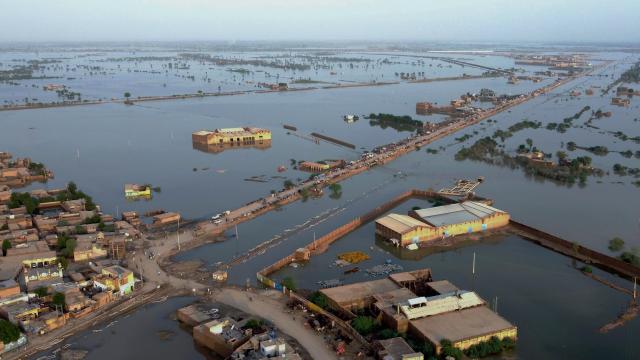Pakistan’s 2022 monsoon season has been devastating, with 1,545 people dead, including 552 children, according to the latest update from the country’s National Disaster Management Authority. Tens of millions more have been displaced by the resulting floods, which at one point covered more than a third of the country.
It’s a disaster of immense scale. And though Pakistan has faced destructive, widespread rains and floods before, Prime Minister Shehbaz Sharif has called the ongoing inundation “the worst in the history of Pakistan.”
Now, an international group of 25 scientists say we can also officially call the monsoons and floods a catastrophe of climate change. The determination comes in a report from World Weather Attribution, a globally collaborative climate science project.
In their analysis of this year’s monsoon season, the researchers found its severity was likely heavily exacerbated by human-caused climate change. Specifically, warming global temperatures intensified the rains by about 50% and worsened the situation in the country’s southern provinces by an estimated 75%.
The scientists further determined that rainfall of this scale can now be expected about once in every 100 years in Pakistan, under our current level of climate change (i.e. 1.2 degrees C of warming). With just 0.8 C of additional heat, “rainfall will significantly increase further,” the authors noted.

“We have very large uncertainties,” said Sjoukje Philip, a climate scientist at the Royal Netherlands Meteorological Institute and co-author of the attribution study, in an interview with Inside Climate News. “But based on observations and models together, and combining that with our theoretical knowledge, we now find that it’s likely that climate change played a role.”
In the immediate aftermath of a disaster, there’s usually not enough data to tie a specific event to climate change. Scientists have mountains of research supporting the overall trends, but it can be difficult to confidently assess if and how climate change contributed to any individual hurricane, rainstorm, or drought — all things that happened prior to the advent of fossil fuels.
It takes lots of modelling and analysis to tease out climate change’s effects from random variability, come up with a formal attribution, and quantify the impacts. But these determinations are coming faster than ever, as extreme weather events become increasingly common and the science advances.
In fact, in the case of present-day heatwaves, an earlier World Weather Attribution study concluded that each and every one is now directly attributable to climate change in some way.
In Pakistan’s case, a massive spring heatwave in South Asia is part of what helped set the stage for summer’s awful monsoons. The atmosphere could hold more water than normal, and soils (particularly in the arid south) were dry, depleted, and left unabsorbent by drought.
The injustice extends beyond that of disproportionate climate impacts. The country’s propensity for flooding has also been exacerbated by a legacy of British colonialism. For instance, under British rule, low lying areas were drained and developed for farmland, according to the Inside Climate News report.
“Taking all of these factors together, it is important to remember that the disaster was a result of vulnerability constructed over a number of years,” Ayesha Siddiqi, a University of Cambridge geographer and report co-author, told the outlet. “It shouldn’t be seen ahistorically as the outcome of just one kind of sudden or sporadic weather event.”
The ability to quickly and accurately attribute a disaster to climate change could help continue to push the needle on public concern, empower survivors in legal fights for reparations, or even shift the tides of global policy. And even if it does none of that, at least we can now pinpoint the extent to which swathes of humanity are being screwed over by the fossil fuel addiction of a much smaller group.
